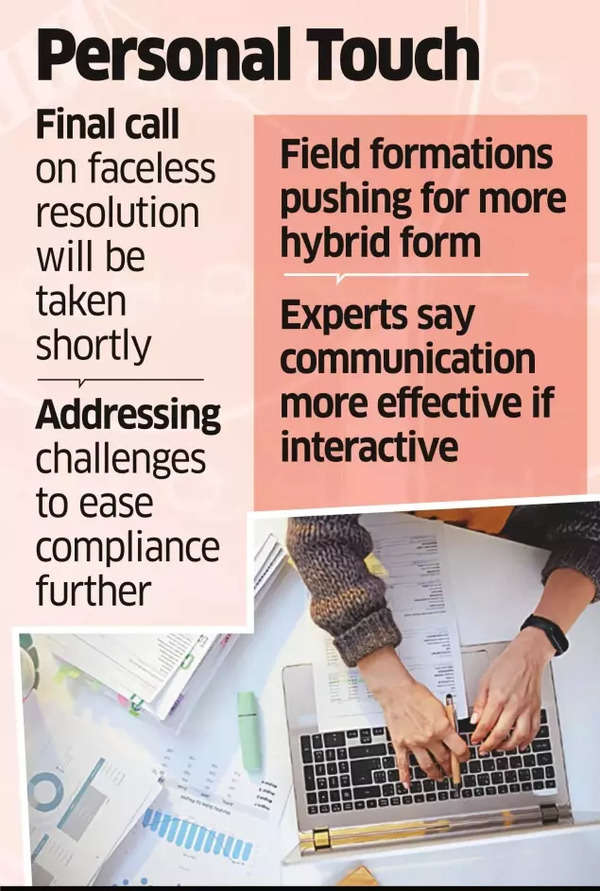The Quest for More Taxpayer-Friendly Income Tax Assessment Mechanism
Is the income tax assessment mechanism on the verge of becoming more taxpayer-friendly? The Indian government is contemplating an overhaul of the current ‘faceless’ income tax (I-T) assessment system to make it more user-centric. This proposed revamp is based on feedback and suggestions aimed at enhancing the efficacy of the program.
Launched on April 1, 2021, the faceless scheme was introduced to reduce human interaction in tax-related disputes and assessments. Under this system, the income tax department manages return processing, refund issuance, tax assessments, scrutiny, and appeal management. Assessing officers are assigned cases randomly, regardless of their geographical jurisdiction.
Sources familiar with the matter have revealed that a hybrid model is under consideration. This model would give taxpayers the option to choose between the faceless system and traditional in-person resolution. An official quoted by ET mentioned, “It is being reviewed to evaluate its effectiveness,” adding that making it voluntary for taxpayers is being considered as a potential solution.
Another official highlighted that the primary goal is to address implementation hurdles and simplify compliance for taxpayers. A final decision is expected soon, according to the official.

Income Tax Assessment
While the video conferencing-based assessment system is deemed stable, there is a growing demand from individual and business taxpayers for some level of face-to-face interaction. Field formations within the income tax department also advocate for a hybrid approach to ensure optimal resource utilization.
Assessing taxes is a complex process, and experts believe that interactive communication between taxpayers and tax officers can lead to better outcomes.
Sudhir Kapadia, partner at EY, emphasized the need for adequate time for taxpayers to prepare and present their case, especially in complex matters. He noted the backlog of cases at the appeal level and stressed the importance of expediting these appeals through prioritization and enhanced technology support.
In the faceless system, discrepancies between jurisdictional assessing officers’ portals and the Central Processing Centre’s systems have resulted in delayed refunds. Taxpayers face challenges while explaining intricate details of their businesses in virtual interactions, leading to unfavorable outcomes in some cases.
Akhil Chandna, partner at Grant Thornton Bharat, highlighted certain challenges faced by taxpayers, such as the lack of specific options for seeking adjournment and difficulties in uploading large files online. These issues need to be addressed to enhance the overall effectiveness of the faceless scheme.








